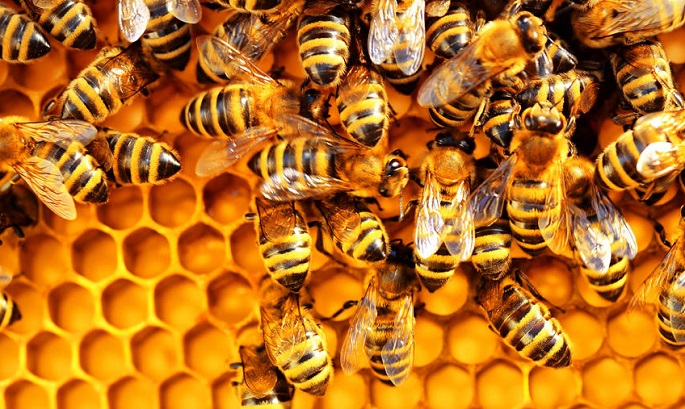Insect vaccine helps bees stay healthy
Published : 31 Oct 2020, 03:58
The Dalan AH oral vaccine, previously called PrimeBEE, is the first-ever vaccine for honey bees and other pollinators could keep pollinators safe from bacterial diseases and give invaluable support for food production worldwide, said a press release of the University of Helsinki.
Two former scientists in the University of Helsinki, Dalial Freitak and Heli Salmela invented the vaccine.
The basis of the innovation is quite simple. When the queen bee eats something with pathogens in it, the pathogen signature molecules are bound by vitellogenin. Vitellogenin then carries these signature molecules into the queen’s eggs, where they work as inducers for future immune responses.
Before this, no-one had thought that insect vaccination could be possible at all. That is because the insect immune system, although rather similar to the mammalian system, lacks one of the central mechanisms for immunological memory – antibodies.
"Now we've discovered the mechanism to show that you can actually vaccinate them. You can transfer a signal from one generation to another," Dalial Freitak, researcher and now the CSO of Dalan Animal Health, said.
Dalial Freitak has been working with insects and the immune system throughout her career. Starting with moths, she noticed that if the parental generation is exposed to certain bacteria via their food, their offspring show elevated immune responses.
"So they could actually convey something by eating. I just didn't know what the mechanism was. At the time, as I started my post-doc work in Helsinki, I met with Heli Salmela, who was working on honeybees and a protein called vitellogenin. I heard her talk and I was like: OK, I could make a bet that it is your protein that takes my signal from one generation to another. We started to collaborate, got funding from the Business Finland, and that was actually the beginning of our oral vaccine for bees," Dalial Freitak said.
"Our next goal is to launch our first vaccine product in the US and then the EU. Once we have tackled bee diseases we want to offer solutions for other commercially used pollinators such as bumble bees and other beneficial insects. Our goal is to offer innovative solutions in insect health in order to promote sustainable agriculture," Dalial Freitak said.


